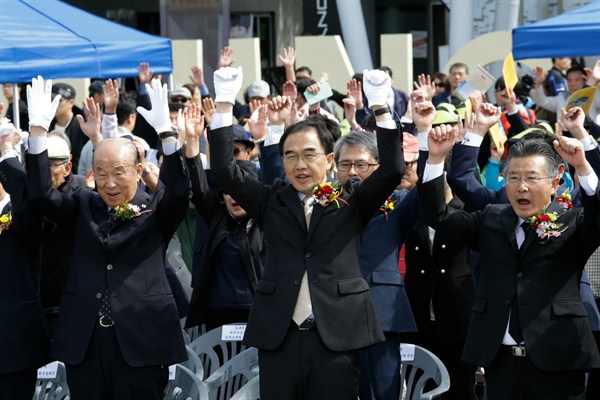Since the initial division of the Korean Peninsula at the end of World War II, there has been a distant hope in diplomatic circles, as well as among many Koreans, that the split might one day be undone. American officials have supported Korean reunification for years, and even China, which benefits from the buffer North Korea provides between its border and the U.S.-allied South, has quietly favored the idea at times of heightened tensions. In preparation for a possible reunion, South Korea funds a Ministry of Unification that studies strategies for bringing the two states closer—and last month financed an $8 million humanitarian aid package for Pyongyang.
The goal of bringing the two Koreas together again has a certain historical appeal. It echoes the reunification of Germany, which healed a Cold War rift, reunited families and produced a powerhouse economy. Many hope that through shared history and culture, and pooled economic resources, the two countries could eventually be stronger together.
But with the passage of time from the Korean War to the regime of Kim Jong Il to the present, with almost monthly provocations from Kim Jong Un and a war of words between Washington and Pyongyang, this goal now seems more quixotic than ever. As the economic gap between North and South has grown, popular opinion in both countries has shifted, and geopolitical realities have begun to solidify, many of the traditional arguments for bringing the two back together no longer apply. Given the substantial money and energy devoted annually to this vision, it may well be time to question how logical it is today to continue preparing for this imagined future.

